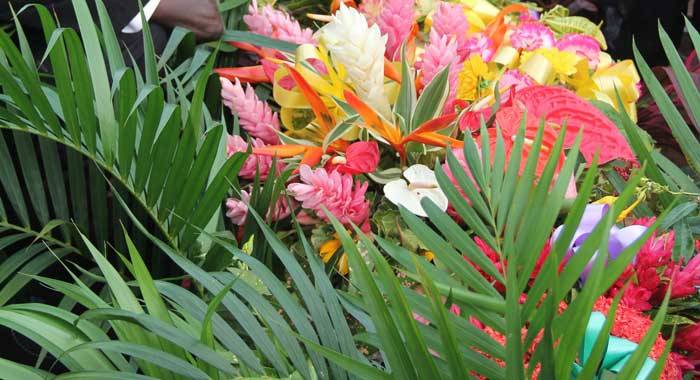Prime Minister Ralph Gonsalves says that the consumption of alcohol at funerals “has become quite terrible”, hence his government’s move to ban it.
“… we treat funerals in a very solemn way,” he said on NBC Radio, adding that he hopes this tradition continues.
“In America, in New York City, you see funerals down the street blocking up the road? You don’t see it in London, in other parts of the world. But we have that tradition and people, motorists and other users of the road, are satisfied that they would go along with the inconvenience and wait a while,” Gonsalves said.
He said people can have their jump-up because it is a celebration.
“… and you can play your music and the rest of it and you beat your boom drum if you want to do that. But this drinking of alcohol in the procession and the icebox behind the hearse, people selling three for 10, surely, in our civilisation, you go down the road, eight, nine out of every 10 persons will tell you, ‘Man, that wrong’,” the prime minister said.
The Public Order (Amendment) Bill, 2024, which is on the Order Paper for Parliament, will be sent to a select committee of Parliament.
The government is encouraging the public to submit comments on the proposed changes, which will provide a fine of EC$200 for people who supply or consume alcohol in a funeral procession or at public cemeteries.
The prime minister said it is unfortunate that the situation has reached the stage where the government has to regulate it.
“… good sense should have prevailed because we have always had singing and music and dancing going behind coffins, going to the cemetery from the church and long may that continue,” Gonsalves said.
“But you can’t turn it into an excuse, even though we are celebrating, you are celebrating, but it is solemn. You can’t have it as an excuse for bacchanalia.”
Gonsalves, who is also minister of legal affairs, said he saw a problem with the draft law because while cemeteries have boundaries in law, the boundary marks are not put up.
“So, if you are going to make a law in that regard, you have to make sure, I believe, to help persons to know at which point they can do what,” the prime minister said, adding that he has spoken to the draftspersons on this.
“So, we may well see it focuses on what is really the central problem: people drinking rum and beer and some of them drunk in the funeral and behaving quite badly.”
Gonsalves noted that some people will take iceboxes into the cemetery but said the existing legislation can be used to address this.
“So, the focus will remain on the, from our standpoint, the reasons I have given, on the procession. I hear some people say ‘What you want to control people’s behaviour for at a funeral?’ The law doesn’t control and regulate people’s behaviour otherwise too? That’s what public order is about.”
Gonsalves said he knows that some people may wish to go even further than what the proposed amendment provides for.
“But I say to them, let’s express in the law disapproval for that.”
He said the law would not affect shops “just outside the cemetery gate, or just across the road from the cemetery” that are licensed to sell intoxicating liquors.
“As in everything else, you have to show good sense and balance and we may not be able to deal with that because we have put it also up for discussion and it will be good for persons not just if you get home tired from work and want to use it as an opportunity to vent their spleen on something to just make a comment one way or another,” the prime minister said.
“If you have a comment to make, send it into the attorney general’s chambers or you can send it to my office. That’s how we do our law-making and in a civilised community.”






